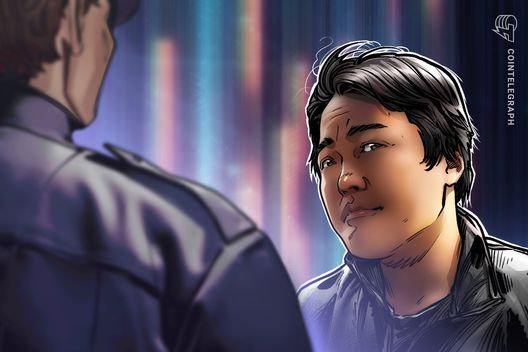

Do Kwon, the co-founder of Terraform Labs, has pleaded guilty to two charges related to his role in the company, marking a significant turn in the legal saga following the collapse of the TerraUSD (UST) and Luna cryptocurrencies in 2022. The anticipated change of plea occurred in a New York federal court, where Kwon had previously pleaded not guilty to nine felony charges.
Kwon's legal troubles stem from the dramatic downfall of the Terra ecosystem, which resulted in an estimated $40 billion in losses for investors. The collapse triggered a ripple effect throughout the crypto market, contributing to the failure of several other crypto platforms. Kwon now faces charges of wire fraud and conspiracy to defraud.
The charges against Kwon include allegations of misleading investors to fraudulently inflate the value of Terraform's cryptocurrencies and of laundering the proceeds of his crimes. Specifically, prosecutors claim that Kwon orchestrated deceptive measures to maintain the $1 peg of TerraUSD, a stablecoin, including a secret agreement with a high-frequency trading firm to purchase millions of tokens when the peg faltered. Publicly, Kwon attributed the rebound to Terra's algorithmic design, a strategy that authorities say enticed both retail and institutional investors.
After the crash of UST and LUNA in May 2022, Kwon allegedly distributed a misleading "third party audit" report to conceal his actions and sought to launder the proceeds through various blockchains, cryptocurrency exchanges, and a Swiss bank account.
In March 2023, Kwon was arrested in Europe for attempting to use a fraudulent passport to travel to a country without an extradition treaty with the United States. Following a lengthy legal battle in Montenegro, involving competing extradition requests from the U.S. and South Korea, Kwon was extradited to the United States in December 2024. He has remained in U.S. custody without bail since January.
Judge Paul Engelmayer, who is presiding over the case in the Southern District of New York, had ordered Kwon to be prepared to deliver a detailed statement in court, addressing each charge he planned to admit. The judge also encouraged Kwon's lawyers to assist him in writing an allocution that could be read in open court during the plea proceeding.
While a guilty plea could lead to reduced charges, financial penalties, and a swifter resolution, a conviction on all counts could carry a prison term exceeding a century. Legal analysts suggest that Kwon's change of plea may be a calculated effort to limit his sentencing exposure and avoid the unpredictable nature of a jury trial. If served consecutively, the two charges to which Do Kwon pleaded guilty could carry a sentence of up to 25 years.
The case has significant implications for the broader crypto industry, potentially leading to stricter regulations and compliance measures for fintech startups, particularly those in the crypto space. Countries like Hong Kong and Singapore have already been tightening their grip on the industry, and Kwon's legal issues could accelerate this trend.